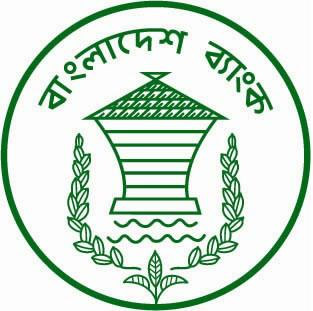
Economic Reporter :
The Bangladesh Bank apprehended that the existing default loan situation of banks might deteriorate due to worsening of business conditions caused by the coronavirus pandemic.
The observation came through the central bank’s latest Monetary Policy Statement announced for the current fiscal year on Wednesday.
“The present non-performing loan situation of the banking sector in Bangladesh has noticeably improved mainly on the back of the recent rescheduling facility, but it may worsen soon due to deteriorating business conditions on top of the capitalisation of interest along with principal obligations payable in future,” said the statement.
The central bank in its policy statement emphasised ensuring the practices of transparency, accountability, and good governance to tackle rising default loans.
Bangladesh Bank Governor Fazle Kabir addressed the risk of a further rise in default loans as one of the key challenges to the attainment of the new monetary policy’s goals.
The default loan rate – which went up to a decade high of 12 percent in September last year – came down to 9.19 percent in December, which was the lowest in the previous four years.
The default loan rate declined further to 9 percent in March due to suspension of loan payment for nine months during the pandemic situation.
Default loans showed a downward trend since last December due to a loan rescheduling spree under a special package at 2 percent down payment offered by the Bangladesh Bank in May last year.
The government’s lenient rescheduling policy apparently paid off as default loans fell drastically by Tk22,000 crore in three months till December last year.
The banking sector rescheduled loans of a total of Tk52,770 crore last year, which was 127 percent higher from the previous year.
The Bangladesh Bank apprehended that the existing default loan situation of banks might deteriorate due to worsening of business conditions caused by the coronavirus pandemic.
The observation came through the central bank’s latest Monetary Policy Statement announced for the current fiscal year on Wednesday.
“The present non-performing loan situation of the banking sector in Bangladesh has noticeably improved mainly on the back of the recent rescheduling facility, but it may worsen soon due to deteriorating business conditions on top of the capitalisation of interest along with principal obligations payable in future,” said the statement.
The central bank in its policy statement emphasised ensuring the practices of transparency, accountability, and good governance to tackle rising default loans.
Bangladesh Bank Governor Fazle Kabir addressed the risk of a further rise in default loans as one of the key challenges to the attainment of the new monetary policy’s goals.
The default loan rate – which went up to a decade high of 12 percent in September last year – came down to 9.19 percent in December, which was the lowest in the previous four years.
The default loan rate declined further to 9 percent in March due to suspension of loan payment for nine months during the pandemic situation.
Default loans showed a downward trend since last December due to a loan rescheduling spree under a special package at 2 percent down payment offered by the Bangladesh Bank in May last year.
The government’s lenient rescheduling policy apparently paid off as default loans fell drastically by Tk22,000 crore in three months till December last year.
The banking sector rescheduled loans of a total of Tk52,770 crore last year, which was 127 percent higher from the previous year.

